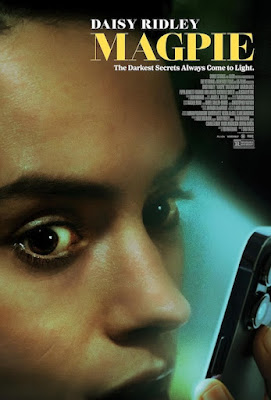FrightFest Halloween 2024
It’s funny how you slip into that film festival routine so quickly – eating improperly, snacking, recognising faces, seeing friends, etc. This year, as some of us retreat to the big screen for genre treats, outside they are turning the middle of Leicester Square into Paddington Bear Promotional Peru – and perhaps I am mistaken, but it seems especially busy.
To the films…
Sam Yates’ ‘Magpie’ is a slick, well presented anti-toxic masculinity revenge thriller, but one that doesn’t seem to think we’ve caught on long before the revelation.
Isaac Ezban’s ‘Parvulos’ has a similar structural flaw: it is too long and feels it because it doesn’t quite know how to place its beats. There are also tonal instabilities that throw you out a little (no zombie sex in front of the kids, please) and a little queasy quirk about vaccines. Three brothers trying to survive the apocalypse: the young actors give it all; the aesthetic is so washed out it’s often black and white; there’s some nice casual build-up, but it’s all increasingly a little bitty. You can tell it is heartfelt, which seems to make a blindspot to its deficiencies, but it meanders along long enough for the audience to notice. The aesthetic and the central horror of potential starvation do a lot to make this memorable, but if you’re bored of zombies this won’t change your mind.
Airell Anthony Hayles ‘Advent’ has an inspiration that’s more troubling than anything the film offers (The Blue Whale Challenge). It lacks the imagination to exploit its limited household claustrophobia, or to go for jump-scares, or to make the challenges surprising or disturbing, or to fill the short running time with interest.
Guido Tölke’s ‘A Bitter Taste’ also suffers from being too long and tempo issues: it dives straight in and veers between beautiful visuals and the kind of over-editing that hints at desperate amateurishness. It’s not amateurish, but it is messy and lacks a focus and pace that would make this fun. It has a giallo flavouring, and the wild body-horror of the finale almost makes it worthwhile, but it’s exhausting rather than amusing.
I was probably expecting ‘Alien Country’ to be a little ‘Mars Attacks’, which it isn’t, but it’s funny and goofy. Obviously in love with its Utah Small Town Americana, it’s K.C. Clyde’s natural funnyman charm that holds it all together while peppered with small winning gags (“Chase mixtape”; “Zombies – this far North?”; cops discussing bakery). Endearing.
Yusron Fuadi ‘The Draft!’ is generically stumbling along it’s tropes, when suddenly its title makes sense and opens up a host of meta-gags. Even the score set to “overkill” and a gag reel make sense in context. Surprisingly smart and amusing.
Chris
Reading’s ‘Time Travel is Dangerous’ is winningly funny from the start –
two slightly daft and self-obsessed vintage shop owners use time-travel to
stock their store – but gets lost in a story that takes a less interesting,
more self-obsessed and less funny inter-dimensional story. It's "How did we end up here?", but in a way that squanders interest.
Any seasoned horror fan will get where this is going from the opening credits collage. Teddy Grennan’s ‘Catch a Killer’ makes for a thriller whose stylishness belies its B-genre concept, but it’s slick, entertaining, very enjoyable and hosts a great central performance from Sam Brooks. And for once, the romance feels worthwhile rather than performative. I for one appreciate the swiftness of the ending as opposed to a originally conceived protracted showdown that would have highlighted more problematic elements.
It's the slow burn of Emma Benestan’s ‘Animale’ that draws you in with Oulaya Amamra’s soft-and-tough performance riveting from the start. The slow burn allows the etching of the community and character to soak in. If it ends up being more obvious than promised, not realising that it need not be, it is nevertheless fascinating, exhibiting a sure hand and sense of place and culture in the Carmague region bull running context. And what to do with a bull running woman, eh men?
So it's the back-end selection that proved most rewarding.
Performances of the festival:
- Oulaya Amamra ~ 'Animale'
- Sam Brooks ~ 'Catch a Killer'
- K.C. Clyde ~ 'Alien Country'




















